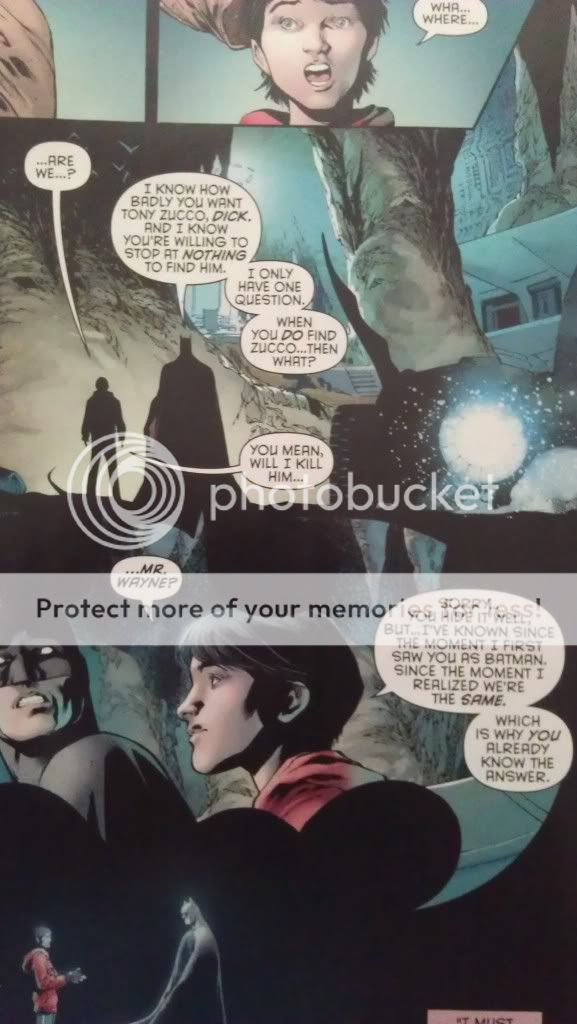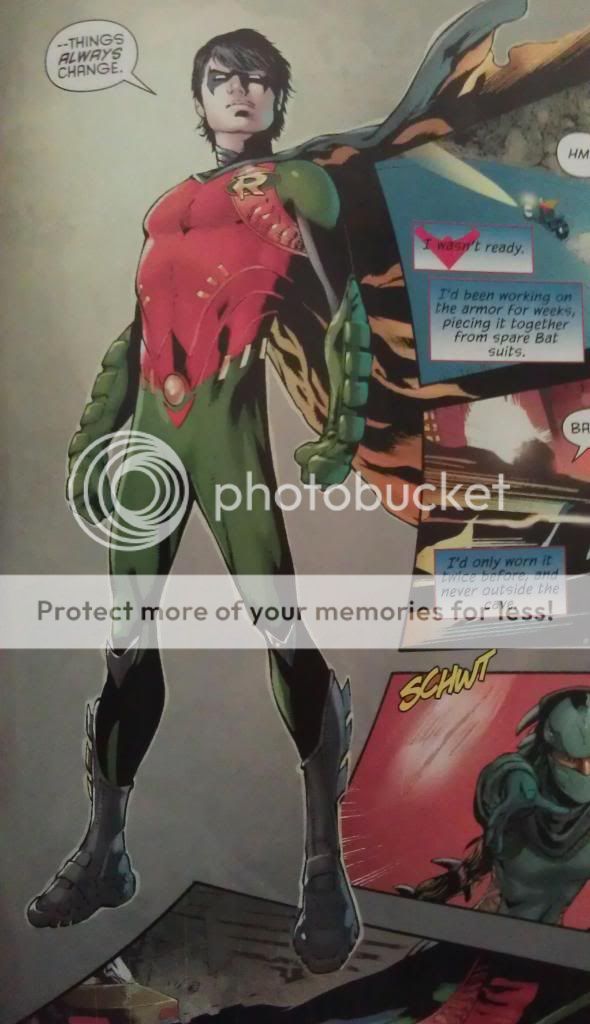At first, he represents the way most of Gotham would have felt about Batman, otherwise known as "the guy who murdered Harvey Dent (our hero) and a bunch of cops in cold blood".
Except that he doesn't really, as there's not really any exploration of the concept whatsoever. He represents how Foley feels about Batman. Nevermind that saying "Batman is a villain" is kind of redundant filmwise after the Mayor gives a speech about how Dent was betrayed murdered by this "thug". Also, the whole police force chases Batman, so that kind of represents how they feel about him. Foley becomes somewhat redundant in that case.
However, after the city learns the truth about Dent's murder...and after months of living in terror, Batman returns to Gotham with his symbol publicly emblazoned for Bane and his army to see.
Which means exactly that. Hell, for all the people of Gotham know, the Bat-symbol just means "Ha ha! I, Batman was behind Bane's occupation of your city, and now I will create this flaming symbol to show you just that!"
Batman was showing that the city wasn't going to go down in flames without a fight.
Even though the city pretty much did. I'm curious how a flaming Bat-emblem inherently shows that.
Batman was not afraid of Bane and his army. This is enough to inspire Foley to come out of hiding and fight for his city, as I'm sure Batman inspired others.
Or...a combination of Gordon's encounter with Foley coupled with knowing Batman was back was...although something people seem to miss the point on is that Foley being inspired by Batman's return makes no sense, as he thought Batman was a murderous thug, and I'm hard pressed to remember a sequence in the film where anything else is shown, except when Batman fights with the police, which is after Foley made his choice to stand with them in the first place. What's with Foley's sudden trust in Batman?
I think the biggest misfire with Foley was his casting. Not the right actor for the role, IMO.
The biggest misfire with Foley is that the writing is half-baked. There's supposed to be an emotional payoff to Foley's final stand/sacrifice, but really you just think "Well, he's slightly less of a dick now for actually doing his job".
Alfred is the one to refer the police as "bloated" in the film.
Yes, in regard to the merry chase. Pretty sure he's talking about the fact that there were tons and tons of police cars, etc after Batman. Not the state of the police in general.
It's hinted at in all sorts of ways. Gordon is made fun of by the congressman for being so vigilant ("Hasn't he seen the numbers?").
Except that that's a congressman, not a cop. Its not any indication that the police force itself is bloated, complacent, or cocky.
The way Foley turns a blind eye to the explosion in the sewer and doesn't send anyone down to rescue Gordon.
That's basically just Foley being grossly incompetent and a dick.
I think the fact that they responded so quickly for the congressman speaks to the fact that it was Gordon still calling the shots and it was a case he had his eye on.
Which is all well and good. My point is that the sequence doesn't show a police force that is bloated, cocky or complacent, but one that is on top of things.
I just don't think the point of his "choice" was to get us to care about him so much as it was to allow us to witness the power of Batman's symbol over someone so seemingly unlikable and cowardly.
Who really had no reason to be inspired by Batman to begin with.
So yeah, the ideas behind his character could have been spread across random cops throughout the movie, but by consolidating it into one character I think there is more gained than lost.
We gained a crappy caricature...er, character.
The way the story is structured, with Gordon being hospitalized and the scale of the things that happen, we had to see who was out in the field calling the shots in his absence.
And that person apparently had to be a blithering idiot, because only a blithering idiot could make Gordon look competent...
The character was a functional cog in the wheel of the story. Perfunctory? Maybe. That doesn't make it "atrocious", "terrible", "awful" or any of the other harsh words that have been thrown around.
Correct. What makes it atrocious, terrible, etc, is the fact that tonally, his character barely fits the film he's in, he's incredibly poorly and broadly written, which makes him come across as a caricature of a cop, and his character's "exploration" consists of half-baked ideas and seemingly random resolutions about his few issues which make little to no sense in context.
Being under-developed makes guys like Flint Marko and Eddie Brock, Jr. terrible in Spider-Man 3, so why doesn't the same apply to Jen?
Because Jen isn't the main character in a film, but a plot device that is more an extension of a main character, in this case, Selina.
No Deputy Commisioner is going to be portrayed as competent With Gordon around.
Because apparently only being temporarily replaced by a blithering idiot could make Gordon look good by comparison. If anything, it would have been more impressive if Gordon's temporary replacement was COMPETENT, so there'd be at least SOME associated dramatic potential to "Will Gordon retire"?
Basically, he made a play for Gordons job and as a result we got our first look at The Bat!
I didn't really see Foley making a play for Gordon's job. His character might have been a bit more interesting if he had. The film makes it fairly clear that Foley was more or less next in line anyway, and sooner rather than later.








